Event Cinema
Wednesdays for the Planet | The Sanctuary: Survival Stories of the Alps
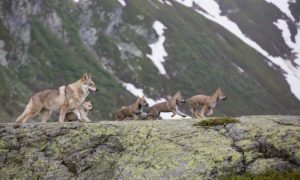
Wednesdays for the Planet is a series of online screenings and virtual presentations with experts highlighting the natural world and other environmental challenges our planet faces. The virtual screenings are for educational purposes, non-profit and non-commercial.
World Wildlife Day
For the month of February, we will be showcasing nature documentaries leading up to World Wildlife Day on 3 March, the day of signature of the Convention on International Trade in Endangered Species of Wild Fauna and Flora (CITES) in 1973.
The Earth is home to countless species of fauna and flora – too many to even attempt counting. This rich diversity, and the billions of years during which its myriad elements have interacted, are precisely what has made our planet inhabitable for all living creatures, including humans. Historically, we have depended on the constant interplay and interlinkages between all elements of the biosphere for all our needs: the air we breathe, the food we eat, the energy we use, and the materials we need for all purposes. However, unsustainable human activities and overexploitation of the species and natural resources that make up the habitats and ecosystems of all wildlife are imperiling the world’s biodiversity. Nearly a quarter of all species are presently at risk of going extinct in the coming decades, and their demise would only speed up the disappearance of countless others, putting us in danger as well.
On World Wildlife Day, we celebrate the special place of wild plants and animals in their many varied and beautiful forms as a component of the world’s biological diversity. We will work to raise awareness of the multitude of benefits of wildlife to people, particularly to those communities who live in closest proximity to it, and we will discuss the threats they are facing and the urgent need for governments, civil society, private sector actors and individuals to add their voices and take actions to help conserve wildlife and ensure its continued use is sustainable.
Documentary
The Sanctuary: Survival Stories of the Alps
Directed by Frédéric Fougea and narrated by Nathan Willcocks, “The Sanctuary: Survival Stories of the Alps” is a dive inside a wild land where nature hides some of her greatest secrets: The Alps.
The Alps! A long stone mountain range in the heart of Europe with steep slopes, wind swept cutting edge rocks, and an air desperately lacking of oxygen. A biting cold. How does wildlife adapt to these extreme conditions, seduce each other, raise their youngsters, conquer new territories and roam vast distances? From the mighty bear that fears no one to the strange bearded vulture that only eats bones, from the lonely she-wolf that cast out of her pack to the surprising brown frog that lives in the snow, the animals who live in the Alps must outsmart each day the natural hazards of this extreme environment. From the highest tops down to the deepest valleys, here are the surprising destinies of those species facing the violence of the mountain. This documentary takes you on an incredible journey through the frozen heart of Europe to discover that it is not always the strongest that survives, but more often those that help each other.
Online Screening
The Geneva Environment Network would like to thank the director of the film Frédéric Fougea, Boréales and Jackson Wild for the documentary.
Watch the trailer; the full film is available until 3 March 2021.
Experts
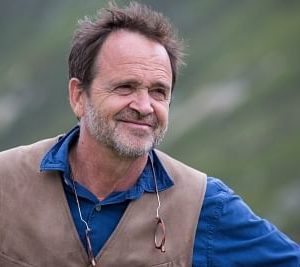
Frédéric Fougea
Director, The Sanctuary: Survival Stories of the Alps
Frédéric Fougea is a French author, director and cinema and television producer. His films are recognizable for their particular style, mixing documentary and fiction; constructed like “narratives” more than classic documentaries. Often, they are described as “tales” with the focus tending to be the relationship between humans and animals; exploring the animalistic qualities of man and the human traits of animals.
Between 1989 and 1999 he wrote and produced, with his company Boréales and Canal+, a series of thirteen animal films, entitled “Les Seigneurs des animaux” (The Lords of the Animals). The series was primarily concerned with the extraordinary relationships maintained between humans and animals in traditional societies. “Il danse pour ses cormorans (1993),” the most famous work of the series, tells the story of a Chinese fisherman who has trained his cormorants using ancestral techniques: they obey his voice and movements and fish for him. This anthology saw great success, internationally. Broadcast on over one hundred channels in every country, translated into forty languages, it brought back more than one hundred awards from festivals worldwide, among them an International Emmy Award and the Grand National Prize for Audiovisual Creation (1994). He also produced, in collaboration with his brother Barthélémy Fougea, the collection “Passions d’enfants” (1996) that portrays young musical prodigies from all four corners of the globe, through the discovery of their world and their music.
Frédéric made his first venture into cinema in 1998, writing and directing the feature film “Hanuman,” in coproduction with Gaumont, depicting the remarkable friendship between a young Scotsman and a macaque who helps him to fight against cultural heritage traffic in India. After having produced animal documentaries such as “The Monkey Prince” or “The Fabulous Adventure of Men and Animals,” he wrote the narration for “A Species Odyssey” (2003), Jacques Malaterre’s popular docu-fiction dedicated to the prehistoric. In its first broadcast on France 3, the docu-fiction was watched by 8.7 million viewers, 34.2% of the public; referred to by Le Parisien as a real “television event.” Frédéric produced sequels to this film: “Homo sapiens” in 2005 and “The Rise of Man” in 2007. This trilogy was broadcasted globally, benefitting notably from the scientific expertise of paleoanthropologist Yves Coppens.
Frédéric also wrote and produced the true story of a chimpanzee and its trainer in “Ham, Astrochimp #65” (2006), directed by Jérôme-Cecil Auffret, and co-wrote the original screenplay with Michel Fessler for “Man to Man” (2005), the epic saga of two pygmies in Europe at the end of the 19th century, directed by Régis Wargnier, with Kristin Scott Thomas and Joseph Fiennes in the main roles.
In 2008, he began the collection “Ce jour-là, tout a change” for France Télévisions. Created for a prime time audience, and made with substantial production value, the series aimed to transport the viewer to behind the scenes of power and to relive all the intensity and drama of the key moments in our history. Following “L’Assassinat d’Henri IV “and “L’Évasion de Louis XVI,” “L’Appel du 18 juin” was broadcasted in commemoration of the 70th anniversary of the event.
In 2010, he organized an ambitious shoot in Japan: “Facing the Killer Volcano,” a docu-fiction directed by Jérôme Cornuau that recounts the final days of Maurice and Katia Krafft on the slopes of Mount Unzen. This “super-production” blends exclusive archive footage and aerial views with reconstructed scenes with comedians.
Broadcasted on France 2, “Le Plus Beau Pays du monde” (Wild France), which he wrote, produced and directed in collaboration with Jacques Malaterre, is an immense success, welcoming 6.5 million viewers (another 500,000 on replay) and a 23.4% market share, France 2’s best audience (outside sport and politics) in the year 2013, and voted France’s favorite programme in 2013 (with a score of 8.9/10 on the Qualimat barometer for Harris Interactive).
L’Express described it as a “spectacular celebration of nature.” For his capacity for innovation, Frédéric has been listed by Realscreen magazine among the 100 most influential producers in the world.
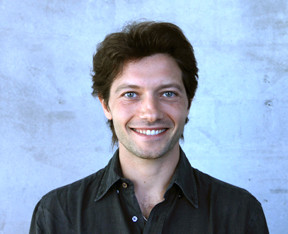
Filippo Favilli
Research Group Leader, Institute for Regional Development, Eurac Research
Filippo Favilli, Ph.D., is a naturalist and a geographer. During his 20 years of carrier in the field of research, he explored the natural environment from different points of view, in order to get a wider knowledge of nature and of its processes. He has been always attracted by the relationship humans have with Nature, especially with wildlife species. In his last 10 years of work at Eurac Research in Bolzano he wrote and managed several projects related to the maintenance of ecological connectivity and to the issue of human-wildlife coexistence. He currently leads an internal research group on Human-Environmental Interactions, that deals with all the issues related to the co-living of human and nature in mountain areas, mainly about sustainable tourism, coexistence with large carnivores, animal-car collisions and management of protected areas. He is a member of the Wildlife and Society Platform of the Alpine Convention and of the Biodiversity Working Group of the Carpathians Convention.
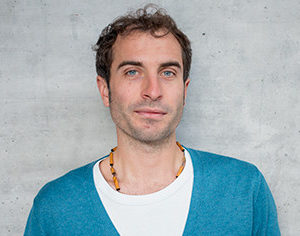
Isidoro De Bortoli
Researcher and Project Manager, Eurac Research
Isidoro De Bortoli is a researcher and project manager at the Institute for Regional Development of Eurac Research since 2013. He holds a master’s degree in Private International Law from the University of Trento and is an environmental lawyer. He also completed a second-level Master in World Natural Heritage Management. Isidoro is a recognized mediator in civil and commercial matters and supported the United Nations for Environmental protection in the field of Wildlife Crimes in the Carpathians. He works in the field of biodiversity protection, environmental law, wildlife crimes, and sustainable tourism.
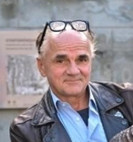
Bernd Schildger
Director, Tierpark Bern
Prof. Dr. Bernd Schildger has served as Director of the Tierpark Bern since 1997. He has authored numerous scientific publications and has also served as a board member of Zoo Switzerland since 2017. From 2009 to 2017, he was president of the Competence Center Wildlife Management. In 2011, he was awarded the Burgerliche Medaille Bern and in 2012 the Berner Kommunikationspreis. As part of his professorship at the University of Giessen, he has been lecturing on the diseases in zoo animals for almost 20 years.
Virtual Presentations
Alpine Convention
The Alpine Convention is the world’s first international treaty considering a transnational mountain area in its geographical entirety. The Convention was signed by the eight Alpine countries – Austria, France, Germany, Italy, Switzerland, Liechtenstein, Slovenia and Monaco – and the European Union.
Since the Contracting Parties share a common territory with common challenges, the Alpine Convention aims at the protection and sustainable development of the Alps. This mountain area in the heart of Europe is the natural, cultural, living as well as economic environment for more than 14 million people and a manifold number of guests per annum.
On December 10, 2020, at the XVI Alpine Conference, Switzerland took over the Presidency of the Alpine Convention for 2021-2022. Together with the other Alpine states, the Permanent Secretariat of the Alpine Convention and the observers, Switzerland intends to promote climate protection and climate change adaptation in the Alpine region.
Links
More Documentaries for #WorldWildlifeDay
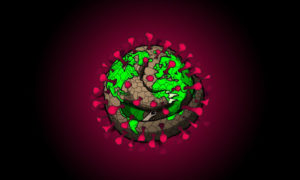
Corona: The Pandemic and the Pangolin
An uncomfortable, yet eye-opening, documentary that goes at the root of the pandemic to untangle the deep links between wildlife and our health
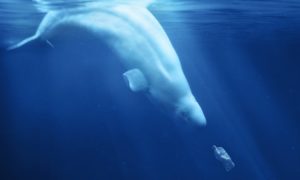
A Plastic Ocean
A breathtaking movie exploring the fragile state of our oceans and uncovers alarming truths about the consequences of our disposable lifestyle
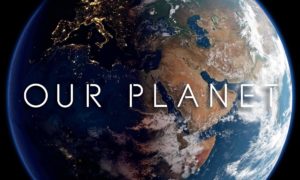
One Planet & Sanctuary Forest
An visual adventure showcasing the connections and reliance of the habitats that make our planet and support the astonishing diversity of life on Earth | A short film on the one of the largest integral forest reserves in the Swiss Plateau
